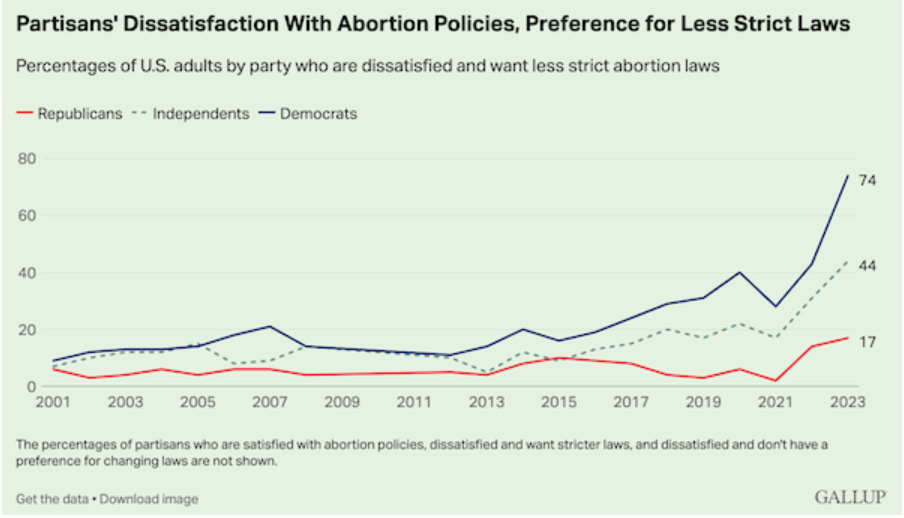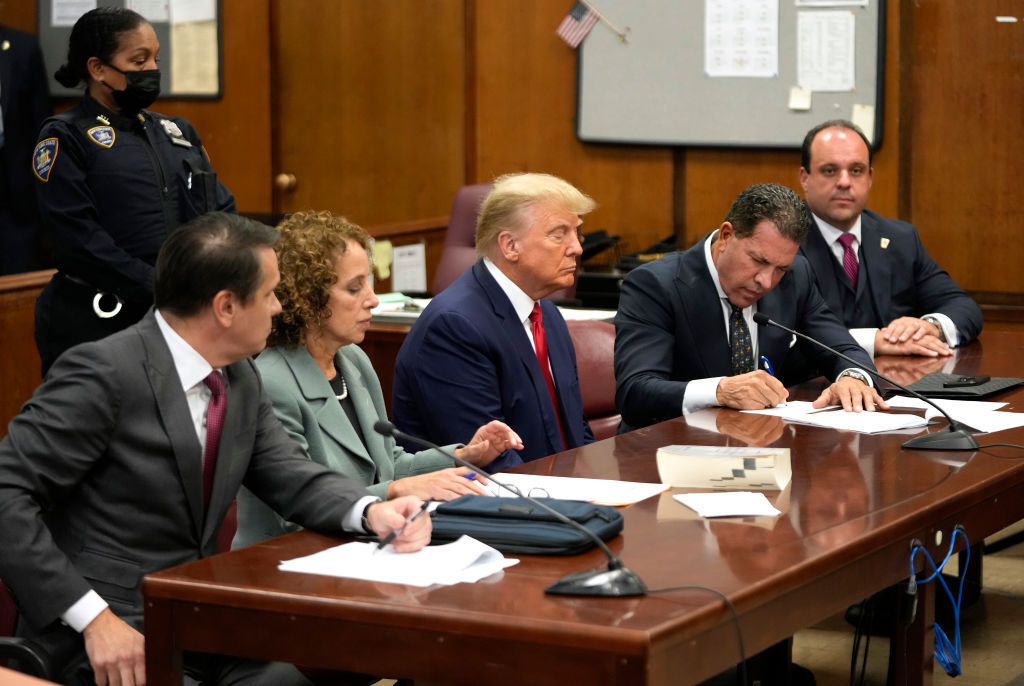Since 2015, when the circus first came to town, news junkies on social media have greeted bizarre new developments in the Trump saga with jokes about “the writers.” The idea is that our politics has grown so strange and sordid that it can’t be real; we must be living in a gonzo simulation, and logically someone must be responsible for scripting it. A writer—or writers.
The president might go to prison for paying off a porn star? The writers really outdid themselves with this one.
Trump’s persona lends itself to the joke. He’s a former reality TV star and once harbored ambitions of becoming a movie mogul. And both he and the people with whom he surrounds himself tend to behave so cartoonishly ineptly or corruptly that they scan more easily as fictional characters than as flesh and blood. Remember Rudy Giuliani’s press conference at Four Seasons Total Landscaping? Look me in the (virtual) eye and tell me that was reality rather than a scripted comic set piece.
The gag about “the writers” is just a gag. But watching Tuesday night’s split screen of Trump hosting an “arraignment party” at Mar-a-Lago while the disastrous election returns from Wisconsin streamed in, it was harder than usual to believe this is all really happening by chance. The synchronicity, the implied cause and effect, it all seemed too perfect to be coincidental.
The writers really outdid themselves with this one.
I made the point earlier this week that the GOP is transforming itself from a traditional political party into whatever the hell you want to call what it is now. It’s easier to say what it isn’t: What it isn’t is a political entity that concerns itself primarily with winning elections and enacting a policy agenda.
If it were, there’d be no way to reconcile the right’s reaction to what happened in Manhattan yesterday with what happened in Wisconsin.
The arraignment turned out to be a dull affair, more so than I would have expected from Trump on a day when the national spotlight was entirely his. He had allegedly insisted on surrendering in Manhattan because he craved the spectacle of martyrdom that would come with being mugshotted, fingerprinted, and perp-walked. In the end, only the fingerprinting happened. (A fake mugshot was duly manufactured by his campaign for merchandising purposes.) He seemed sullen in court and, surprisingly, didn’t speak to the legions of reporters camped outside the courthouse before or afterward.
The indictment itself was also underwhelming. One anti-Trump pundit after another, many of them devout liberals, groaned at how thin and even unfair Manhattan District Attorney Alvin Bragg’s case appears to be. A Dispatch colleague observed that those liberals wouldn’t have been as generous in dismissing Bragg’s theory if they didn’t have other potential federal and state indictments against Trump in their back pockets, which I think is true.
But, knowing conservative media as I do, it’s also true that right-wing partisans wouldn’t have been as skeptical of a flimsy indictment against Barack Obama even if they had reason to believe other charges were coming. Part of what it means to be post-liberal is to not let the niceties of process deter you from achieving your desired outcomes. (See also “January 6, 2021.”) If you arrive at the right ends through dubious means, just call it karma or a make-up call for whichever alleged injustice your own side is aggrieved about.
Here, for instance, is George W. Bush’s former press secretary demanding that Republican prosecutors retaliate by indicting prominent Democrats, seemingly irrespective of whether there are grounds to support criminal charges or not.
Bragg at least has a theory of how a felony was committed in Manhattan, if not an especially convincing one. Yet Rep. James Comer claims he’s received calls from local prosecutors in Kentucky and Tennessee wanting to know “if there are ways they can go after the Bidens now,” raising the question of what offense “the Bidens” might possibly have committed in their jurisdictions. Again, the outcome is what’s important; process is but a detail.
More interesting than yesterday’s legal pageant in Manhattan was the political pageant around the proceedings. Analogies from MAGA devotees between their hero and history’s greatest martyrs ran thick and hot. Some reached for exalted comparisons:
Some for less exalted ones:
Others found elements of the divine in Trump’s ordeal:
The man interviewing Marjorie Taylor Greene in that clip, Brian Glenn of Right Side Broadcasting Network, happens to be her boyfriend. I doubt that fact was disclosed to RSBN viewers, but I also doubt that any viewers would have objected on ethical grounds if it had been. Consumers of populist media expect the hosts to lavish affection on their favorite right-wing politicians. Glenn has simply taken that expectation to its logical conclusion.
Interestingly, with one exception, Greene was the only House Republican willing to show her face at the courthouse on Arraignment Day. The exception was George Santos, the rare figure in the party who might find the thought of huge banks of cameras more intoxicating than Trump does. Santos ended up leaving early, claiming that he felt threatened after being mobbed by the press. No worries: It wasn’t the first arraignment he’s experienced, and it’s unlikely to be the last.
Trump finally spoke in the evening after returning to Mar-a-Lago, and that too was anticlimactic. He refrained from inviting his fans to start blowing things up in protest, having been warned by the court earlier in the day not to incite violence. Instead he slogged wearily through his usual grievances about racist communist prosecutors being out to get him, a sort of low-energy version of the Downfall meme. He did muster the bravado to uncork this line, though:
Even mob bosses don’t talk that way about judges and their families, former prosecutor Andrew Weissmann marveled. But this too is what post-liberalism means: If you dislike a certain outcome, such as an indictment being issued, then the process that produced it must be flawed and unjust. I don’t think Trump impugned the judge and his daughter as a strategic matter, to try to discredit the case. I think he impugned them because he believes it, because that’s how he understands the world. “Everything bad that happens to me is the product of a corrupt conspiracy” is the post-liberal populist credo.
As I was taking all of this in last night, reflecting on the fact that more than one poll now shows a majority of Americans support the indictment, another clip started circulating on social media. Mark Levin began the MAGA era as a vehement Trump opponent before gradually reconciling himself to what the Republican base actually wants in a leader. But the emergence this year of Ron DeSantis as a national figure seemed to offer an escape hatch for traditional conservatives like Levin who, one would think, are keen for a fresh start at long last.
They might be less keen than we think.
Levin doesn’t speak for all grassroots Republicans, of course. But judging from the latest national primary polls, he speaks for a solid majority of it.
All told, what we saw yesterday and are likely to continue to see as the right digests the reality of Trump’s indictment is a sort of fantasy politics that would never be practiced by a traditional political party, only by a whatever-the-hell-you-want-to-call-what-it-is-now. A rational party would not consider the formal filing of criminal charges an “O Captain, My Captain” moment in favor of Trump’s continuing leadership. It would, at a minimum, reckon with whether the immorality of the acts for which he’s been charged disqualify him even if they don’t rise to the level of a felony.
And it would consider carefully whether undecided voters will react as favorably to seeing this hollow charlatan placed atop the ballot again in 2024 as the average Mark Levin listener might.
Which brings us to the other side of yesterday’s split screen.
A crime was allegedly committed in Manhattan. The punishment for Republicans’ ongoing indifference to such things was meted out in Wisconsin.
In 2020 conservative Daniel Kelly ran for a seat on the Wisconsin Supreme Court and earned the endorsement of Donald Trump. He got his clock cleaned, losing by 10 points. After his defeat he went to work for the GOP on “election issues,” aiding the Republican effort to overturn Joe Biden’s narrow victory in Wisconsin.
A rational party would have concluded post-midterm that Kelly is too jungled up with Trump and “Stop the Steal” to be worth renominating in 2023 in a tough race in a state which Trump did, after all, lose. But Kelly was renominated, narrowly.
He got his clock cleaned again. As I write this on Wednesday afternoon, he trails progressive Janet Protasiewicz by 10 points precisely. Wisconsin Republicans may lose everything as a result—an abortion ban, favorable legislative maps, Scott Walker’s collective bargaining reforms—just as the party lost an incalculable amount in states like Arizona and Georgia last year when they insisted on nominating Trumpy candidates there as well.
The definition of insanity is doing the same thing over and over and expecting different results, Albert Einstein (never actually) said.* The post-rational Republican base in Wisconsin doubled down on a weak candidate, presumably for no better reasons than name recognition and a MAGA pedigree, despite abundant evidence that Kelly was unpopular with swing voters and would likely lose.
That that lesson was being retaught in a key swing state last night in real time, at the very hour Trump was wheezing about his criminal jeopardy on national television to the ecstasy of fantasy-politics Republicans, was an irony so rich that the writers might never outdo it.
Unlike Trump, Kelly at least conceded his race. Although he did it in the Trumpiest way possible.
“Between the midterms and Wisconsin tonight it looks increasingly clear that voters are responsive to anti-democratic policies,” Nate Silver tweeted in the aftermath. “It may [not be] all that many voters in raw numbers but it’s enough to change the outcome of elections in key swing state races.” Whether by “anti-democratic policies” he meant Kelly’s work on “Stop the Steal” or extreme Republican gerrymandering in Wisconsin is unclear, but it’s not either/or, as Protasiewicz ran ads attacking Kelly on both points. And Silver’s conclusion is sound: A narrow but decisive pro-democracy majority, which includes anti-Trump conservatives, appears to have come together in swing states. A rational political party would think very hard about that fact before choosing its next nominee.
Republicans do not seem poised to think very hard about it, even as their guy moves on to exciting new moderate-pleasing policy proposals like defunding the (federal) police.
Trump’s fingerprints weren’t the only, or even the main, reason for Kelly’s defeat, it must be said. My own preview of the race yesterday identified abortion as Protasiewicz’s strongest issue, with voter interest piqued by the fate of Wisconsin’s 1849 statute banning the practice. Had Kelly won, that statute almost certainly would have been upheld in the new post-Roe legal landscape. Confronted with the possibility, swing voters turned around and handed the hard-left candidate a double-digit victory.
This isn’t the first time in the past six months that abortion has seemingly tilted a key race to the Democrats either. Conservatives are officially nervous about it.
In 2021, a year before the Dobbs ruling, Gallup asked Americans if they’re satisfied with current abortion laws and found a plurality of 33 percent were. Among those who said otherwise, more said they were dissatisfied because the laws are too lenient than because they’re too strict. This year, after Dobbs, the share who described themselves as dissatisfied because the laws are too strict skyrocketed to a plurality of 46 percent. The share who call themselves satisfied with the current legal posture was little more than half that.
The partisan trends speak volumes.

Looking at that, one wonders which cohort is most responsible for Democrats’ recent electoral victories. Is liberal and independent turnout being galvanized by a backlash to Republican bans or are pro-choice Republicans laying partisan allegiance aside and crossing the aisle for now to help elect Democrats?
That’s also not an either/or, of course.
To address this problem, one needn’t agree with Coulter that it’s time to give up on abortion bans. Parties exist for a reason; asking Republicans to abandon a core belief like protecting fetal life for the sake of winning elections would raise the question of why the party exists at all. (“To seal the border,” Coulter would doubtless say.) There’ll be a pro-choice candidate on the ballot in every race in 2024. Why should there be two?
But if the right intends to stand firm on an unpopular abortion policy, it’ll need to take great care not to alienate moderates in other ways. A swing voter who gets 90 percent of what he or she wants from a party might be willing to overlook the other 10 percent, even if that 10 percent involves an issue about which Americans on both sides feel passionately.
What happens, though, if that party not only doubles down on the 10 percent but appoints as its chief salesman a corrupt, criminally accused lowlife with whom most normal human beings long ago lost patience?
The GOP might be able to win in 2024 with Trump and a more moderate abortion policy, and it might be able to win with a stricter abortion policy and someone other than Trump. But after watching yesterday’s split screen in Manhattan and Wisconsin, it’s hard to believe it can win with Trump and abortion bans unto eternity.
A rational party would understand that and choose, however painful it might be. A party prone to fantasy politics will decide that it doesn’t need to compromise on anything because “the silent majority” that keeps delivering 46 percent of the vote will somehow bring it home on Election Day.
The real danger for Republicans in doubling down on Trump and abortion bans was identified this morning by Benjy Sarlin of Semafor. Trump’s one neat trick, Sarlin wrote, is his ability to motivate insane turnout on both sides via the intensity of feeling he inspires. So long as that polarization continues and each party stays hyper-engaged about electing or defeating him again, we’re apt to continue to have close elections.
But what if another hyper-polarizing issue intervenes and causes parts of Trump’s base to grow disaffected? If you like him but believe strongly in a woman’s right to choose, where do you land in 2024 if he gets stuck having to defend strict bans to keep his evangelical base happy? If you’re strongly pro-life and Trump decides to moderate on abortion for the sake of electability, do you turn out for him anyway?
Liberals will remain juiced by both issues. But to the extent Republicans are forced to choose between Trumpism and uncompromising abortion restrictions, some of the air could go out of the MAGA balloon. And suddenly a Kelly-style beating in swing states like Wisconsin would seem within the realm of possibility.
This, in the end, is the lesson of yesterday’s split screen, two different bad outcomes generated by a common cause, a party that’s lost touch with political reality. Republicans can keep the cult and still win, perhaps, provided that they move to the center on policy. Or they can stick to right-wing policies and still win, perhaps, by ditching the cult and choosing a more appealing nominee. But trying to have it both ways and believing you can win is fantasy politics. The fantasy will end badly.
*Correction, April 6, 2023: This column misstated the apocryphal quote attributed to Albert Einstein about the definition of insanity.









Please note that we at The Dispatch hold ourselves, our work, and our commenters to a higher standard than other places on the internet. We welcome comments that foster genuine debate or discussion—including comments critical of us or our work—but responses that include ad hominem attacks on fellow Dispatch members or are intended to stoke fear and anger may be moderated.
You are currently using a limited time guest pass and do not have access to commenting. Consider subscribing to join the conversation.
With your membership, you only have the ability to comment on The Morning Dispatch articles. Consider upgrading to join the conversation everywhere.